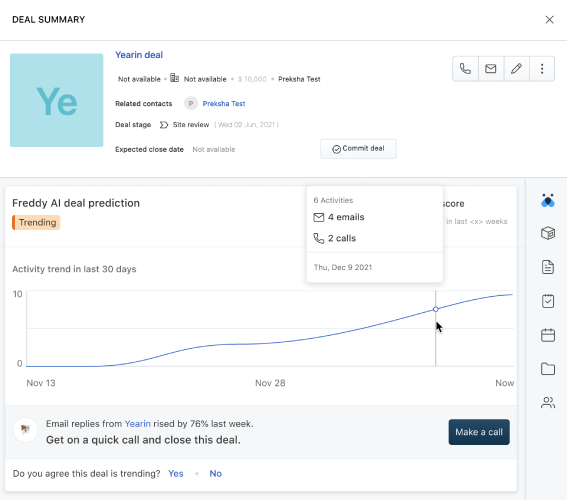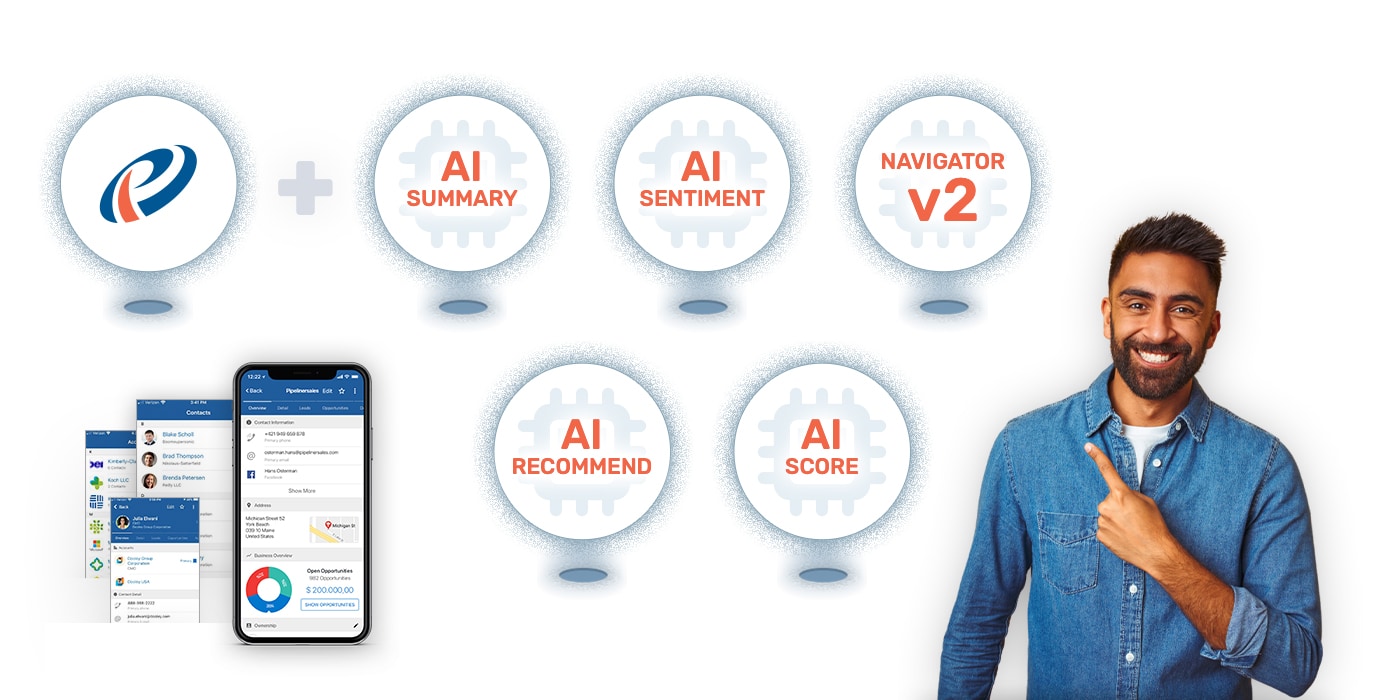
CRM with AI Lead Prediction: Revolutionizing Sales and Marketing
In today’s hyper-competitive business landscape, attracting, nurturing, and converting leads into loyal customers is paramount. Traditional customer relationship management (CRM) systems have been instrumental in organizing customer data and streamlining sales processes. However, the integration of artificial intelligence (AI), particularly in the form of lead prediction, is revolutionizing how businesses approach sales and marketing.
The Evolution of CRM
CRM systems have evolved significantly over the years. Early CRMs focused primarily on contact management, providing a centralized repository for customer information. As technology advanced, CRMs expanded to include sales force automation, marketing automation, and customer service capabilities. These advancements enabled businesses to manage customer interactions across various channels, personalize marketing campaigns, and improve customer satisfaction.
The Rise of AI in CRM
AI is now transforming CRM systems into intelligent platforms that can analyze vast amounts of data, identify patterns, and provide actionable insights. AI-powered CRM features include:
- Predictive Analytics: Forecasting future customer behavior and sales trends.
- Personalization: Delivering tailored experiences based on individual customer preferences.
- Automation: Automating repetitive tasks to free up sales and marketing teams.
- Chatbots: Providing instant customer support and lead qualification.
AI Lead Prediction: A Game-Changer
AI lead prediction is a particularly impactful application of AI in CRM. It uses machine learning algorithms to analyze historical data and identify the leads most likely to convert into paying customers. This allows sales and marketing teams to prioritize their efforts and focus on the leads with the highest potential.
How AI Lead Prediction Works
AI lead prediction models analyze a wide range of data points to score leads based on their likelihood to convert. These data points may include:
- Demographic Data: Age, gender, location, industry, job title.
- Behavioral Data: Website visits, email engagement, social media activity.
- Firmographic Data: Company size, revenue, industry.
- CRM Data: Past interactions, purchase history, customer service inquiries.
The AI model identifies patterns and correlations between these data points and past conversions. It then assigns a score to each lead, indicating its probability of becoming a customer. Sales and marketing teams can use these scores to prioritize their outreach efforts, personalize their messaging, and allocate resources more effectively.
Benefits of AI Lead Prediction
AI lead prediction offers a multitude of benefits for businesses:
- Increased Conversion Rates: By focusing on the most promising leads, sales teams can increase their conversion rates and generate more revenue.
- Improved Sales Productivity: AI lead prediction frees up sales reps from wasting time on unqualified leads, allowing them to focus on high-potential prospects.
- Reduced Customer Acquisition Costs: By targeting the right leads, businesses can reduce their customer acquisition costs and improve their return on investment.
- Enhanced Customer Experience: By understanding customer needs and preferences, businesses can deliver more personalized and relevant experiences.
- Better Sales Forecasting: AI lead prediction can provide more accurate sales forecasts, enabling businesses to make better decisions about inventory, staffing, and marketing spend.
Implementing AI Lead Prediction
Implementing AI lead prediction requires careful planning and execution. Here are some key steps:
- Define Your Goals: Clearly define what you want to achieve with AI lead prediction. Do you want to increase conversion rates, reduce customer acquisition costs, or improve sales forecasting?
- Gather Data: Collect as much relevant data as possible from your CRM system, website, marketing automation platform, and other sources.
- Choose the Right AI Solution: Select an AI lead prediction solution that fits your business needs and budget. Consider factors such as data integration capabilities, model accuracy, and ease of use.
- Train the Model: Train the AI model using your historical data. This process involves feeding the model with data and allowing it to learn the patterns and correlations that predict conversions.
- Test and Refine: Test the AI model on a subset of your leads and refine it based on the results. Continuously monitor the model’s performance and make adjustments as needed.
- Integrate with CRM: Integrate the AI lead prediction solution with your CRM system to provide sales and marketing teams with real-time lead scores and insights.
- Train Your Team: Train your sales and marketing teams on how to use the AI lead prediction solution effectively. Show them how to interpret lead scores, prioritize leads, and personalize their outreach efforts.
Challenges and Considerations
While AI lead prediction offers significant benefits, there are also some challenges and considerations to keep in mind:
- Data Quality: The accuracy of AI lead prediction models depends on the quality of the data used to train them. Inaccurate or incomplete data can lead to poor predictions.
- Bias: AI models can inherit biases from the data they are trained on. It’s important to identify and mitigate these biases to ensure that the model is fair and unbiased.
- Transparency: It’s important to understand how the AI model is making its predictions. This can help you identify potential issues and ensure that the model is aligned with your business goals.
- Ethical Considerations: AI lead prediction can raise ethical concerns, such as privacy and discrimination. It’s important to use AI responsibly and ethically.
The Future of AI Lead Prediction
AI lead prediction is constantly evolving. Future trends include:
- More Sophisticated Models: AI models will become more sophisticated and accurate as they incorporate new data sources and machine learning techniques.
- Real-Time Prediction: AI models will be able to provide real-time lead scores based on the latest customer interactions.
- Personalized Recommendations: AI models will provide personalized recommendations for how to engage with each lead.
- Integration with Other AI Tools: AI lead prediction will be integrated with other AI tools, such as chatbots and virtual assistants, to provide a seamless customer experience.
Conclusion
CRM with AI lead prediction is transforming the way businesses approach sales and marketing. By leveraging the power of AI, businesses can identify the most promising leads, personalize their outreach efforts, and increase their conversion rates. While there are challenges and considerations to keep in mind, the benefits of AI lead prediction are undeniable. As AI technology continues to evolve, AI lead prediction will become even more powerful and essential for businesses looking to succeed in today’s competitive landscape.

